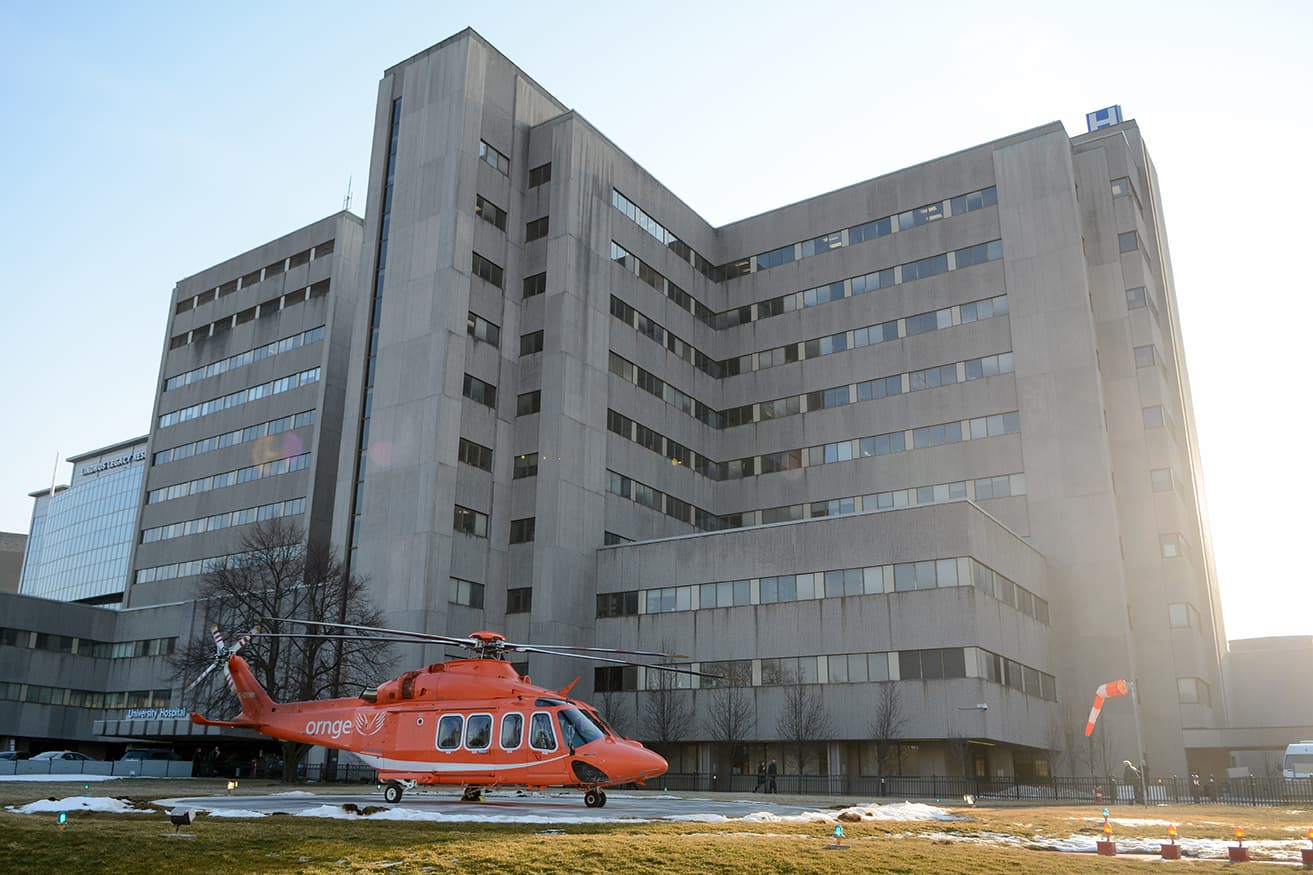Intelligence Analysis
Canada: Confirmed Legionnaires’ Disease Cases Reported in the Middlesex-London Region in July; Outbreak Source Remains Unknown
4 AUG 2025
/
3 min read
Author
Health Intelligence Analyst II

Key Takeaways
- Ontario’s Middlesex-London region is experiencing an outbreak of Legionnaires’ disease, with 70 confirmed cases and two deaths as of July 29, 2025.
- The source of the outbreak remains unconfirmed, but Legionella bacteria were detected in the cooling towers at Victoria Hospital. Further testing is required.
- Legionnaires' disease is a severe form of pneumonia caused by Legionella bacteria, which spread through inhaling aerosolized water droplets, and presents with flu-like symptoms.
- Legionnaires’ disease outbreaks in Canada are often linked to aging infrastructure and contaminated water systems, underscoring the importance of public health surveillance and environmental monitoring to prevent future incidents.
2025 Legionnaires Disease Outbreak in Ontario
On July 8, the Middlesex-London Health Unit (MLHU) in Ontario declared an outbreak of Legionnaires' disease in the City of London. As of July 29, 70 confirmed cases have been reported, with most affected individuals living or working within a six-kilometer radius of the city's southeast side. In the current outbreak, 91 percent of cases (64 cases) required hospitalization.
The Outbreak’s Source
The outbreak's source remains unknown, but officials suspect a common source like a contaminated water system. On July 23, Legionella bacteria were detected in Victoria Hospital's cooling towers, which lie within the six-kilometer outbreak zone. Testing is underway to determine if the strain matches the outbreak strain; however, officials stress this does not confirm the hospital as the source of the community outbreak. What is Legionnaires’ Disease?
Legionnaires' disease is a severe form of pneumonia caused by Legionella bacteria, which spread through inhaling aerosolized water droplets. The bacteria occur naturally in soil and warm water. They can thrive in water systems such as hot water tanks, cooling towers, air conditioning systems, and spas.
The disease is not transmitted from person-to-person. Most healthy people exposed show no symptoms or only mild, flu-like illness, but the risk of severe illness increases for those aged over 50, smokers, and people with pre-existing health conditions.
Symptoms typically appear 2-14 days after exposure, including cough, fever, headaches, muscle aches, and shortness of breath. Due to the ubiquitous nature of Legionella bacteria, not all outbreaks are traceable. The source is not found in about 50 percent of Legionnaires' disease outbreaks.
Risks Associated to Aging Infrastructure
Canada has seen several Legionnaires' disease outbreaks often tied to contaminated cooling towers with notable outbreaks in Toronto in 2005, Quebec City in 2012, and Orillia in 2022. These events underscore the risks associated with aging infrastructure and insufficient water system monitoring. In response, some provinces have introduced measures such as cooling tower registries and stricter regulations to prevent future outbreaks.
While the risk to the general public remains low, the current situation in the MLHU highlights the need for continued vigilance in public health surveillance and environmental management, especially as warmer temperatures and changing climate conditions may increase the likelihood of Legionella proliferation.
This represents the most complete data available as of Aug. 1.
Learn more about leveraging our industry-leading regional and subject matter experts for intelligence that helps your organization stay ahead of risks to your people and operations.
Related
Tags
Sharpen your
view of risk
Subscribe to our newsletter to receive our analysts’ latest insights in your inbox every week.
Intelligence & Insights
Intelligence
Worth Gathering
Employing a team of 200+ analysts around the world, Crisis24 is the only source you need for on-point, actionable insights on any risk-related topic.

Intelligence Analysis
China’s New Digital Measures Likely to Affect International Businesses and Travelers
China is likely to implement additional digital measures that could further exacerbate operational unpredictability for international businesses and travelers.
February 24, 2026

Intelligence Analysis
Six Countries within WHO European Region Lose Measles Elimination Status
On Jan. 26, 2026, the WHO announced that Armenia, Austria, Azerbaijan, Spain, the UK, and Uzbekistan had lost their measles elimination status.
By Robyn Mazriel
February 23, 2026

Intelligence Analysis
Ground Transport and Flight Disruptions Persist in Parts of Mexico Amid Violence
Violence linked to CJNG operations continues to disrupt transport and travel across parts of Mexico. Learn how evolving security risks affect personnel and operations.
February 23, 2026

Intelligence Analysis
Terrorism Outlook 2026: Threats, Tactics, and Global Implications
In 2026, terrorism will be marked by consolidation of influence and operational capacity across vulnerable environments rather than global resurgence.
By Crisis24 Global Intelligence Team
February 19, 2026



